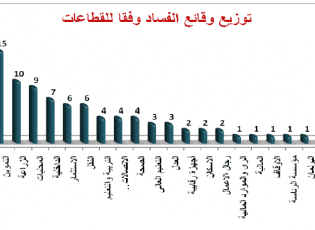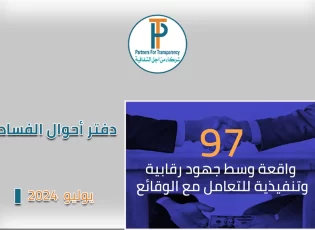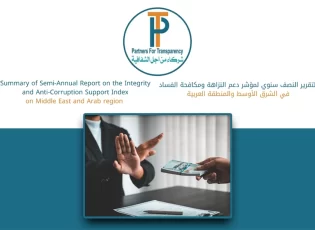Partners for Transparency issues a new research paper
Involving citizens in managing public affairs for the purpose of enhancing transparency and integrity
Within the framework of the Transparency Policy Observatory, Partners for Transparency issued a new research paper entitled “Involving Citizens in Managing Public Affairs with the Purpose of Enhancing Transparency and Integrity”, where the paper attempted to answer the question of the extent to which the administration with transparency can find a suitable work environment in order to reduce the phenomenon of Corruption? And how can the principle of managing with transparency be established in light of the current changes.
The paper indicates that managing with transparency is one of the methods of total quality management, which the administrative system in the third world countries must include and work in order to achieve the best and finest in the various administrative levels, which requires a package of measures, the most important of which is the reorganization of the government apparatus through the application of the concept of engineering Administrative, the development of laws, regulations and procedures applicable within the administrative organizations, Development of employees through preparation, training and performance measurement. Development of organizational structures and work procedures that are considered among the components of management with transparency.
The paper also clarified that the administration’s contribution to transparency and an effective role in fighting corruption requires the availability of a set of basic elements represented in achieving an advanced level of administrative development, creating coordination between agencies concerned with administrative development as well as civil and public service agencies, developing the information network, with the need to control its technologies. Evaluating the institutional and individual performance of administrative organizations, while using the principle of competence in promotions. .
The paper reviewed the impact of participation in public affairs on the economic, social and political conditions, and also developed a package of proposals for interventions that must be taken to enhance this participation and benefit from its positive effects. The most prominent of these interventions was the establishment of entities for participation, at all levels of government, consisting of elected authorities and representatives of Government and community representatives, making use of public hearing techniques, oversight committees, citizen assessment cards, representative boards, and advisory boards.
The paper also recommended the necessity of ensuring equal opportunities for participation and creating incentives for the poor to motivate them to civic participation. And encouraging residents of each region to participate, whether individually or collectively, through organized efforts, to manage public services and facilities, and to meet with those responsible for these tasks.
Short link: https://pfort.org/en/?p=2832












